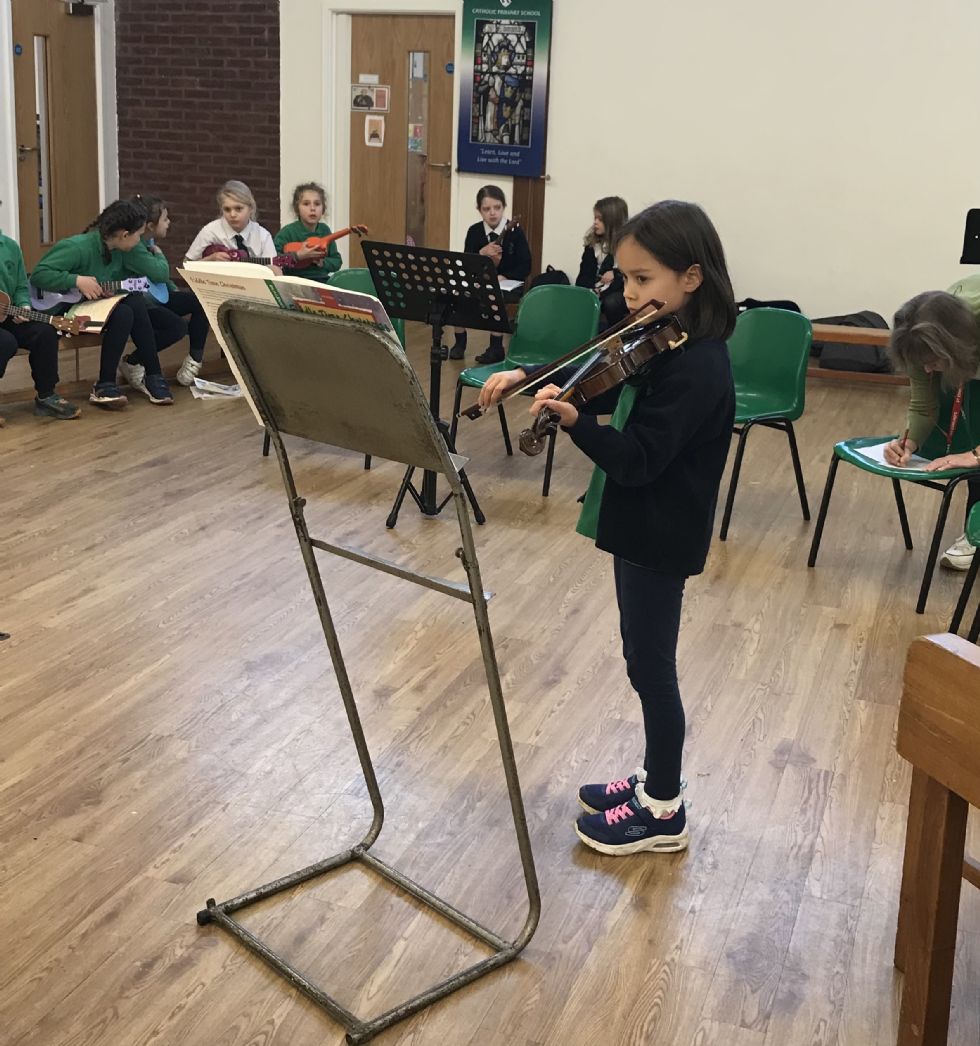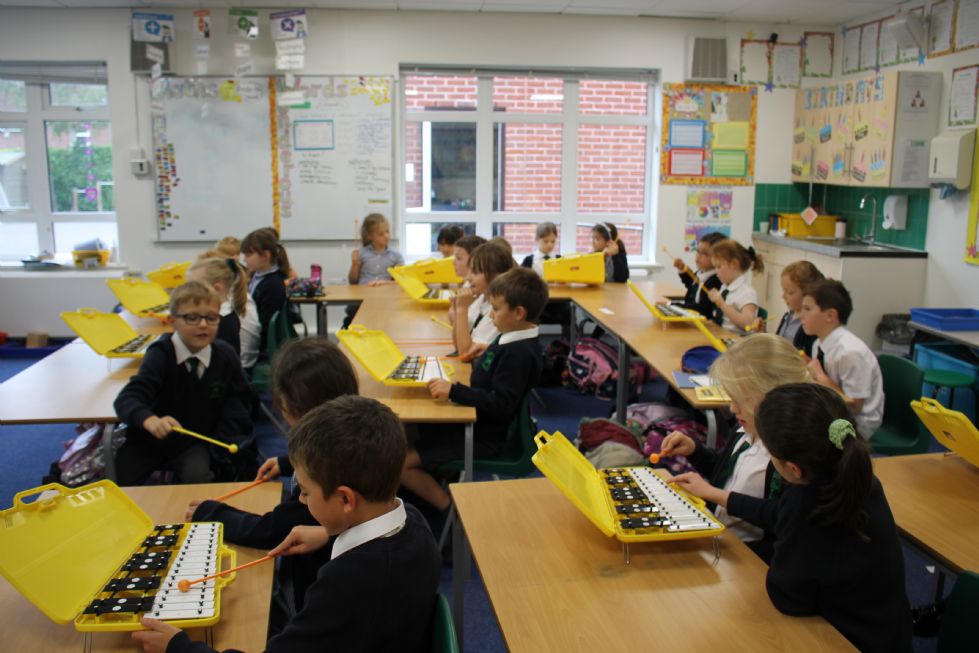Music

St Edmund’s music curriculum aims to instil our pupils with a deep love of music and develop their individual musical potential.
All ages groups have weekly music lessons where they learn both music theory and performance skills which further their self-confidence, creativity, and positive mental well-being. This is enriched by assemblies, performances, workshops, the school choir, and opportunities for individual musical instrument tuition.
Music is a foundation subject within the National Curriculum. Our music learning is directly informed by (but not constrained to) the requirements of the National Curriculum.
Intent
At St Edmund’s we aim for all our pupils to develop:
· a passion for music and an appreciation of music in their lives
· a firm understanding of what music is through a variety of teaching methods, including both theoretical and practical aspects
- theoretical aspects include musical elements, notation, and terminology
- practical aspects include listening, singing, playing, evaluation, improvising and composing across a wide variety of historical periods, styles, traditions and genres
· confidence, well-being, and self-esteem through expressing themselves in both composition and performance.
Implementation
At St Edmund’s, music lessons are based on the National Curriculum using the Charanga music scheme. This helps us ensure a clear learning progression of music knowledge and skills (listening and appraising, musical activities, creating and exploring and performing). This progression is built around the interrelated dimensions of music (pulse, rhythm, pitch, temp, dynamics, timbre, texture, structure, and notation).
Through weekly music lessons, pupils at St Edmund’s will:
· listen to and discuss a wide range of music
· respond to music through movement, dance, art, and words
· create music through their voices and playing tuned and untuned instruments, including Glockenspiel, recorder, and percussion
· improvise and compose music both individually and in groups
· record music using signs, symbols, notation, and digital media
· learn musical notation and terminology such as rhythm, melody and pitch
· perform music through singing, chants, raps, and playing instruments to their peers.
Music plays a key role at St Edmund’s throughout the school year, providing opportunities for pupils to perform to live audiences (parents and the wider community), including:
· Hymn practice and school assemblies
· School masses
· Grandparents’ day
· Class assemblies and performances
· Christmas plays and carol services
There are also opportunities to represent the school at local and national events, such a Christmas concert for the Fountain Centre in Guildford, carol singing in Godalming, and the ‘Young Voices’ concert at the O2 London. We have also been able to participate in music projects such as Djembe drumming workshop at a Xavier Trust secondary school.
St Edmund’s pupils also have access to extra-curricular music lessons from Rocksteady (vocals, drums, keyboard, and guitar) and Surrey Arts (individual and small group instrument tuition in ukulele, violin, piano, and clarinet).
Impact
The successful approach to the teaching of music at St Edmund’s leads to a clear understanding of the value of music in our lives and provides our children with firm foundations for secondary education to build upon.
By the end of KS2 we expect pupils to be able to sing, play and perform different styles of music with confidence and communicate their own opinions about the music they encounter.
We assess our pupils using a wide range of approaches. Formative assessment includes day-to-day observations, interactions during class practical sessions and performances. As a result, our teachers develop a rounded picture of the skills and understanding of each pupil and their different abilities. This informs our teachers’ planning for subsequent lessons to tailor their approach to meet the specific requirements of each class and, where needed, to correct any misconceptions or gaps immediately. This helps ensure we build secure musical foundations for every child.
We also use ‘Pupil Voice’ to measure our children’s enjoyment of music at St Edmund’s. This helps us to ensure we meet our objective of nurturing a love of music and the confidence to play a part in performance.
To monitor our students throughout their time at St Edmund’s, we record each child’s progress at the end of each term using Arbor. This enables staff to clearly track progress in music throughout the school and tailor future lessons based on their prior learning and achievements. This is supplemented by the subject leader and senior leadership team through lesson observations and scrutiny of students’ work to ensure our high standards are maintained.

